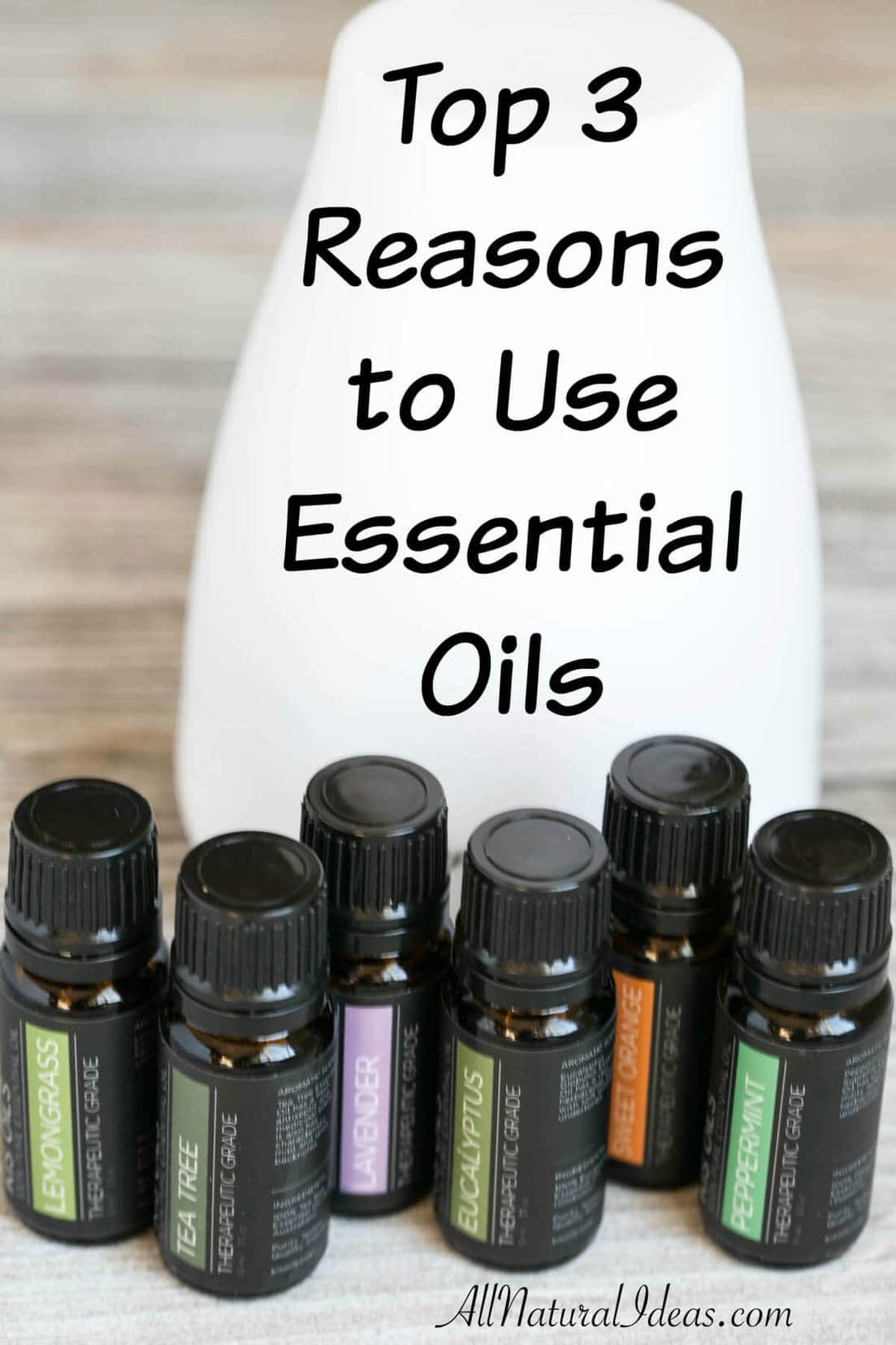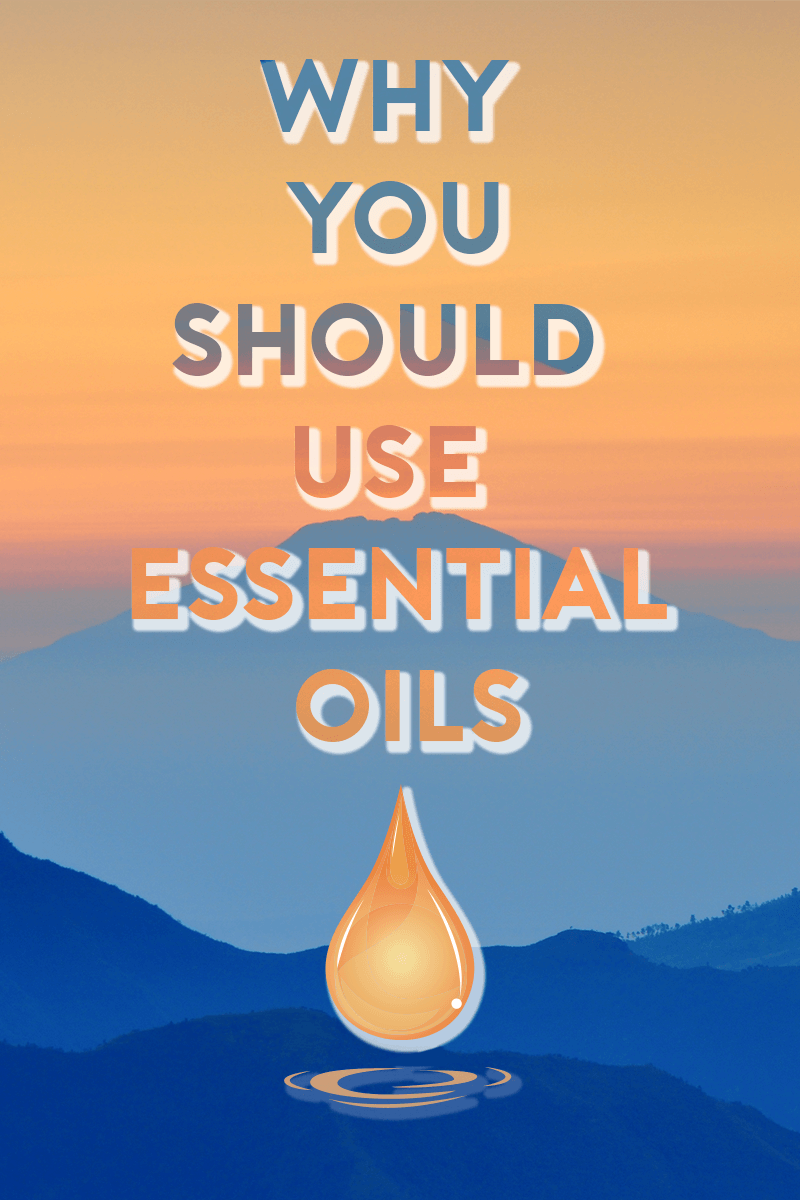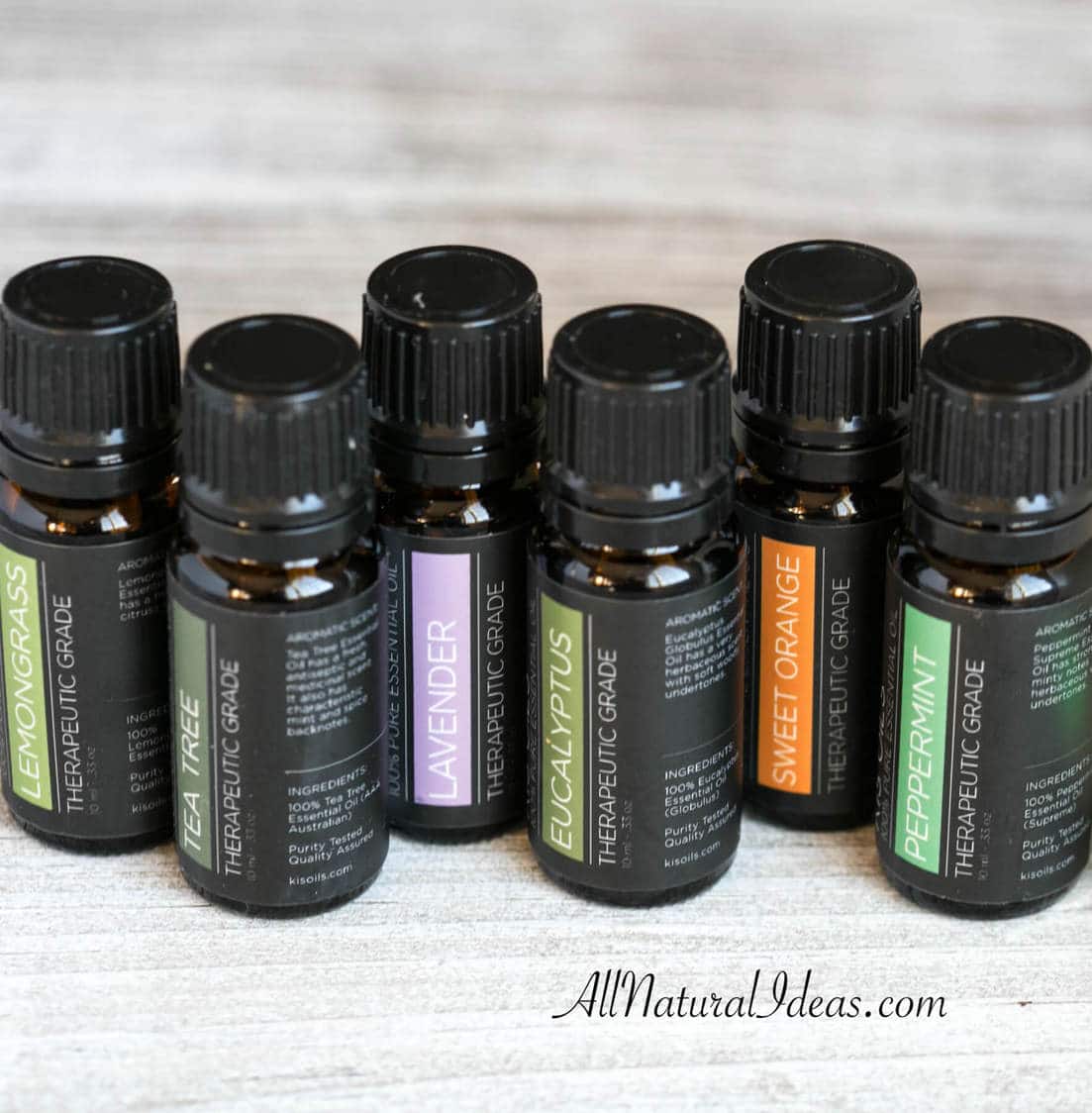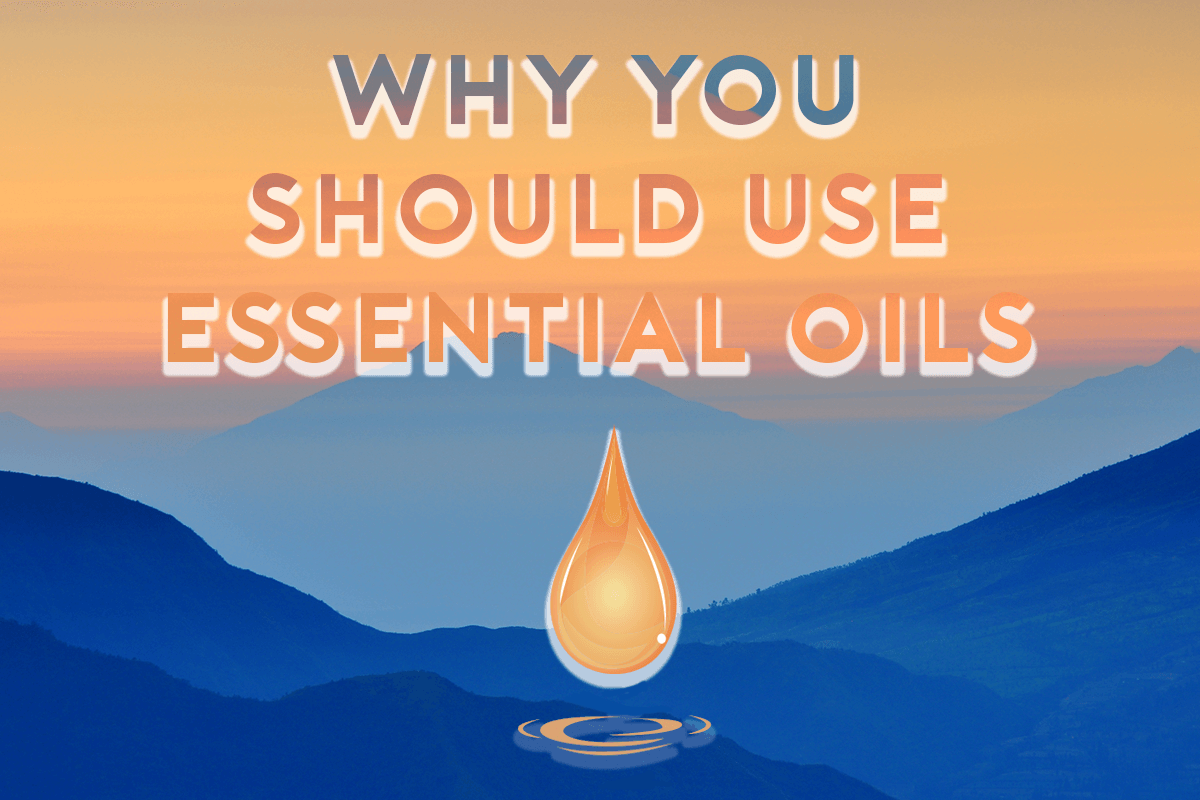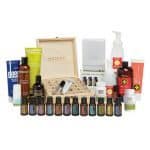Essential oils seem to be everywhere these days. Should you should be using them? Here are the top 3 reasons to use essential oils for your family and home.
Essential oils are being talked about more and more but really, what is all the ‘hype’ about? This seems to be a question many people have and it is a valid question! It’s time to get your question answered! Today’s post will discuss the benefits and reasons to use essential oils!
Top 3 Reasons to Use Essential Oils
1. Essential oils are versatile
Essential oils can help to support many different systems. Take a bottle of peppermint essential oil for example. This oil can help to support digestion, cool the body, promote clear breathing, support healthy respiratory function and can even repel bugs! Can you think of any single item/product that can help with all of these things?
I got hooked on the aromatherapy aspect of essential oils. Although it may be tempting to purchase an inexpensive box of popular scents along with a diffuser, don’t waste your money on cheap oils. They may say that they are 100% pure, but it’s very likely that they contain fillers to make them affordable.
You won’t get the same benefits with these cheaper products. Remember that you do get what you pay for when it comes to essential oils. Do your research and go with trusted brands.
Sometimes the price of high quality essential oils scares people who would be otherwise interested but really, think of the money you save! Instead of buying 4 different products (which will likely expire before you can use all of it), you can use just one! This is just an example of some of the benefits of peppermint essential oil, there are many more. Essential oils such as lemon can also be used for cooking, cleaning, freshening laundry and can even be used to help remove sticky residue from skin!
2. Essential oils can be used for the whole family
This is true, as long as safety precautions are followed! Before using an essential oil on a child, do your research and find out if this particular oil is safe for children (some are not). If you are unsure about using essential oils on your little ones, please consult a physician.
Once you determine that an essential oil can be used with children, you need to make sure you dilute it properly! You wouldn’t give your child an adult dose of vitamins. You also (likely) wouldn’t give your child the same amount of toothpaste that you use and the same is true for essential oils. Lavender is a common essential oil used with children so let’s use that as an example!
When using essential oils with children you must dilute using a carrier oil such as grapeseed oil or fractionated coconut oil ( in a pinch you could even use olive oil).
Recommendations for diluting essential oils:
● Infants: dilute 1 drop of lavender in 1 tablespoon of a carrier oil.
● Children: dilute one drop of essential oil in 1 teaspoon of carrier oil.
3. Essential oils last a long time
Essential oils come in small bottles often ranging from between 515ml. You would think that you would use a bottle this size in no time but it is quite the opposite.
Essential oils are very potent so you often only need 12 drops at a time. A 15ml bottle of essential oil has roughly 250 drops in it so it should last for quite some time but like anything, the more you use the faster it will be gone!
Tip: store your essential oils away from direct sunlight, this will help them to last longer!
I hope this post helped to answer your questions about the reasons to use essential oils! Let’s keep the conversation rolling! I would love to know of the essential oil benefits listed above, which one surprised you the most? Please leave your answers in the comment section below!
Ready to get started with essential oils? The Beginner’s Guide to Essential Oils at Painted Teacup will give you the basics you need and you’ll discover even more reasons to use essential oils.
Disclaimer: The information provided in this post is not intended to cure, prevent, diagnose or treat medical conditions. Please consult with a physician before beginning this or any other new health care program. These statements have not been evaluated by the FDA.
